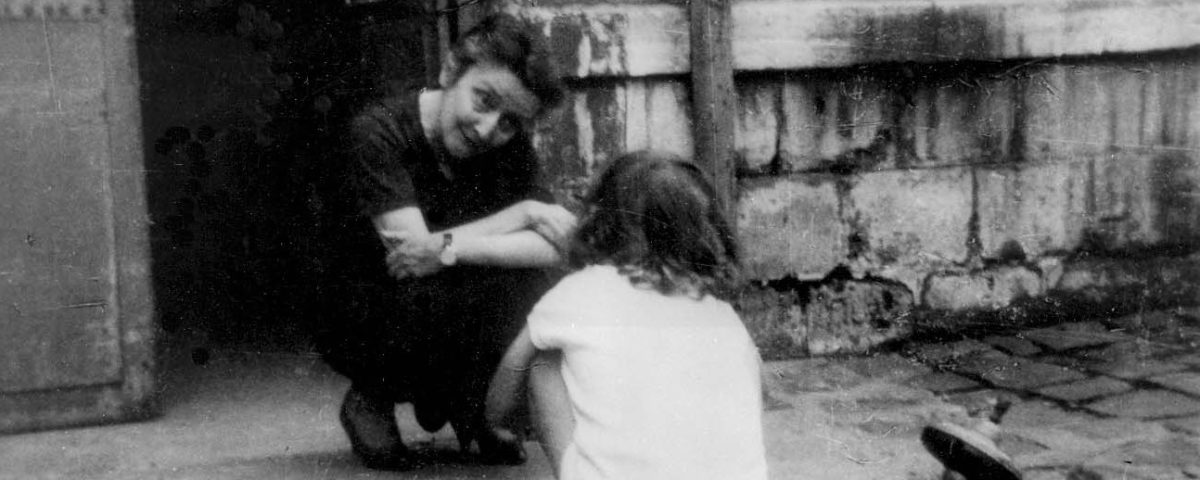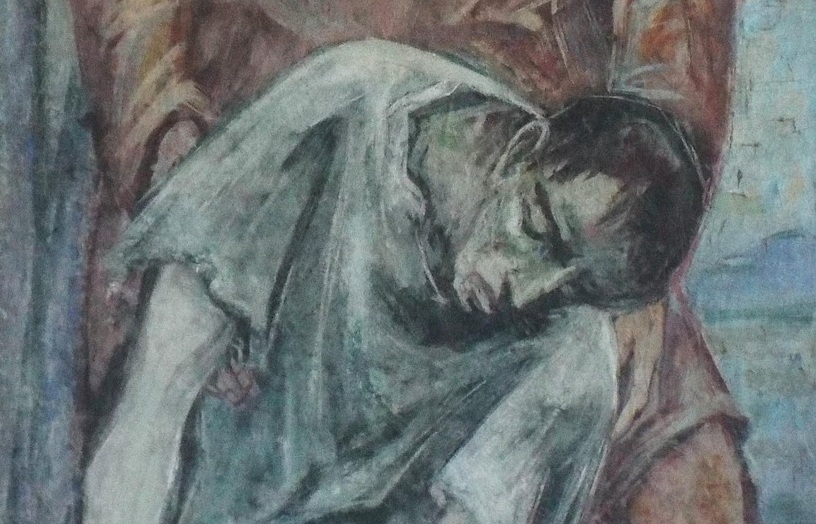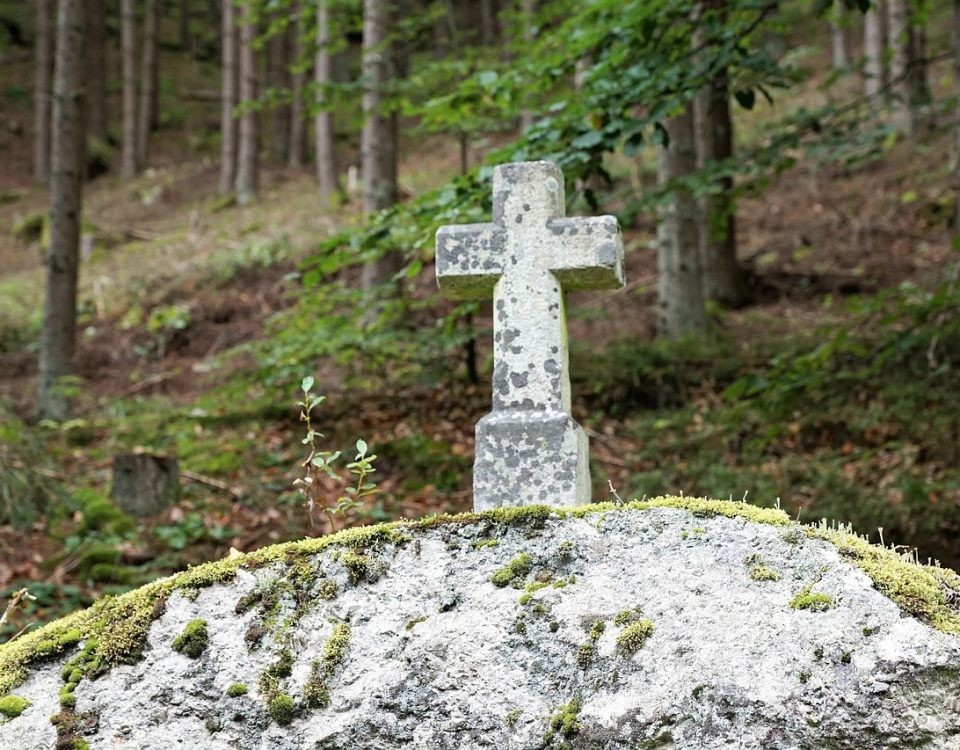Not to disparage all the good advice you’ll be given these next few days or all the praise you’ll rightly receive; (congratulations to you, by the way) however, I always struggle to say something meaningful to you, to offer a word worthy of you—you, my sisters, you very impressive women, you graduates of Ursuline Academy.
Understandably, not everyone likes listening to priests; we are, I admit, sometimes difficult to tolerate; sometimes polite inattention really is all our words are worth, I get it. But I want to say something better today, something worthy of the moment and worthy of you. I want to do my best to say something genuine, not formulaic, generic, forgettable. Again, because I think you’re worthy of words more real than that; because I think we need real words again.
Madeleine Delbrêl was a remarkable woman. You should know about her; she’s not the sort of person we celebrate today. Today we seem bent on always giving the mic to all the wrong people. Anyway, Madeleine Delbrêl: French, a social worker, a poet, a mystic, the cause for her sainthood has been opened in Rome, but I don’t know where that stands. I was in Rome last November and found a small book of the few writings of hers that have been translated into English; I read it all in one day, a little book, but I have been thinking about her ever since. It’s strange what little books can sometimes do. You should keep an eye out for little books; that’s my graduation advice.
I don’t know, it just seems she was real, Madeleine Delbrêl. You know how you can read someone, hear someone, and they just seem real? That’s what it’s like reading her; but it’s not just that she seems real to me, ordinary (she liked the word ordinary), it’s that being ordinary didn’t keep her from being holy, even a mystic—a deeper person than normal, not shallow, not cruel (which is often the fruit of shallowness). Anyway, maybe that’s lesson number one: You can be a real person, you know, an ordinary person, and still be a saint.
Asking you, as we have for years, to learn from people like Saint Angela or Saint Rita or Saint Monica—asking you even to model your lives somehow on their lives—we have not been asking you to do anything extraordinary at all, nothing difficult or heroic at all. In fact, we have simply been asking you to become more fully a human being—a creature finally free enough truly to love beautifully; for only the saints know what it means to love fully, in the full beauty of our humanity. But that’s another argument, and not everyone buys it; and so, the world remains as it is.
Anyway, it’s something she said that I want to say to you. Writing in the 1940s, still during the war, in a time when so many were just trying to remember their humanity and the humanity of others, Madeleine Delbrêl wrote this: “We must love with that charity that is not man-made, with that charity that is divine. And what a caricature we have already made of it: philanthropy, altruism, solidarity…”[1] What a joke we have already made of it, she insisted, turning love into mere philanthropy, mere altruism, mere solidarity. Now she wasn’t belittling things like philanthropy, altruism, and solidarity; rather, she was criticizing that thing we often do, when we trade the concrete practice of charity for big words or big plans or merely into service hours—twenty hours, no more and no less—or when the good things we do become mere bullet points on a résumé, when all that good stuff becomes merely stuff we have done, when the practice of charity has not changed us, when deep down we still know its all for show, and the world remains as it is.
What I want to say to you, what I want to invite you to consider, is what she called the “beautiful scandal of charity.” One way she put it, talking about Saint Francis, she said that he only “truly began to love on the day when, hanging from the rotting neck of a leper, he embraced the thing he feared most in the world.”[2] That is, he didn’t just give money to the poor, he didn’t just volunteer, he didn’t start a political action committee, he didn’t just raise awareness or start a podcast; rather, he found a poor man, a diseased man, and he called him brother and treated as a brother; he embraced him. He didn’t fight poverty; became a friend to the poor. Anyway, that’s when he really learned how to love, she said. I think there’s a lesson there.
Sisters, you are such remarkable people. And you have done great things and will continue to do great things. And you will find yourself in a world wherein you will discover, if you haven’t already, that you have more advantages than most and more opportunities than most; just be grateful for that—don’t pretend you don’t have those advantages; don’t waste time feeling guilty about it, either. Just be a real person, an ordinary person. Be an ordinary person who really loves other people, who doesn’t love just for show or service hours or any other social convention. Be a person who really loves.
Anyway, what I’m trying to say is that what you are now called to follow is the path of true serviam—an ordinary path, a small path, a sometimes filthy path, sometimes a path with little or no pay, a path that will—if you’re walking it right—bring you very close to God’s suffering and God’s poor—near to people who will change you as much as you change them. For what matters first is not how you’ll change things but how you will be changed, how your love will become real.
Love one another as I have loved you, Jesus says.[3] “Put on, as God’s chosen ones,” Paul wrote, “compassion, kindness, lowliness, meekness, patience…And over all these put on love.”[4] That’s what I’ve been trying to talk about, talking too much, I suspect. Perhaps I’ve made my point; perhaps you understand all this already; some of you undoubtedly do. It’s just we desperately need this sort of love again, the love that’s not a joke, the love that’s not just talk, the love that’s ordinary, the love that serves.
And of all the people who may understand this, the need for real love, I would hope it’s you—my sisters, you very impressive women, you daughters of Saint Angela, you graduates of Ursuline Academy. Amen.
[1] Madeleine Delbrêl, The Holiness of Ordinary People, 85
[2] Ibid., 86, 90
[3] John 15:12
[4] Colossians 3:12-14
© 2025 Rev. Joshua J. Whitfield










